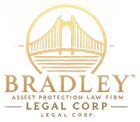How to Navigate Economic Uncertainty & Secure Your Assets
A financial crisis can hit unexpectedly—whether it’s a recession, real estate market crash, stock market downturn, global wars, trade disputes, or a pandemic—and most people are unprepared.
Many high-net-worth individuals, business owners, and real estate investors find themselves financially exposed during economic downturns, leading to asset depletion, legal disputes, and even bankruptcy. The key to survival? Taking swift, strategic action to reduce expenses and secure your assets.
In this guide, we’ll cover:
✔ How to assess financial risk during a crisis
✔ The two most critical steps to protect your assets
✔ Proven legal strategies for safeguarding wealth from creditors and lawsuits
The Financial Survival Formula: How Long Can You Last?
A financial crisis can be broken down into a simple equation:
📌 (Income + Assets) – (Debt Service + Expenses) = Time
✔ If income drops, your assets become your lifeline.
✔ If expenses remain high, your survival window shrinks.
✔ If assets aren’t properly protected, they can be seized by creditors.
To weather the storm, you need a plan that ensures your business and personal finances are shielded from economic uncertainty.
Step 1: Reduce Expenses & Preserve Cash Flow
🔹 Assess Immediate Financial Risks
• Is your income decreasing due to a recession or market downturn?
• Are you carrying high debt obligations (mortgages, business loans, payroll, taxes)?
• Are your investments tied to volatile assets (stocks, real estate, startups)?
💡 Example: A real estate investor who owns multiple properties with high mortgage debt will face significant risk if rental income drops during a downturn. Without expense reduction or restructuring, they could face foreclosure or legal action from lenders.
🔹 Key Actions to Take Now:
✔ Cut non-essential spending (both business and personal).
✔ Restructure debt – negotiate lower payments or defer loans if possible.
✔ Delay large investments unless they directly contribute to cash flow.
✔ Prioritize legal and asset protection strategies over unnecessary spending.
💡 Example: During the 2008 financial crisis, many high-net-worth individuals failed to cut expenses early, leading to cash flow shortages and forced asset liquidations at depressed prices. Those who acted fast—renegotiating debts and cutting costs—stayed afloat.
Step 2: Secure & Protect Your Assets Before It’s Too Late
Why Asset Protection Matters in a Financial Crisis
Many business owners and investors mistakenly assume their assets are safe simply because they own them outright or have insurance. But when a crisis hits, the biggest threats come from:
✔ Lawsuits – Economic downturns lead to increased litigation, from tenant disputes to breach-of-contract claims.
✔ Creditors & Lenders – Banks, private lenders, and financial institutions aggressively pursue debts in a crisis.
✔ Government Actions – In some downturns, governments increase taxation and asset seizures to recover revenue.
💡 Example: A successful business owner who fails to separate personal and business assets may wake up one morning with frozen bank accounts due to a legal claim against their company.
How to Secure Your Assets in a Crisis
✔ Physically Secure Assets
• Move liquid funds into protected accounts.
• Ensure physical valuables are stored safely.
✔ Legally Shield Your Wealth
• Separate personal & business assets to prevent creditor attacks.
• Use Limited Partnerships (LPs) or Asset Protection Trusts to safeguard real estate and investments.
• Reposition at-risk assets into legally protected entities before financial distress hits.
💡 Example: If a real estate investor places rental properties into an LLC owned by a Limited Partnership, creditors targeting their personal finances can’t touch those properties.
✔ Create an Asset Protection Plan Before the Crisis Escalates
The worst mistake you can make is waiting too long to act. Asset protection must be proactively structured before lawsuits, creditor actions, or bankruptcies arise.
📌 Legal Structures That Offer the Best Protection:
1️⃣ Limited Liability Companies (LLCs) – Shields business and rental properties from personal liabilities.
2️⃣ Limited Partnerships (LPs) – Provides a legal firewall between ownership and control.
3️⃣ The Bridge Trust® – Combines domestic and offshore asset protection for maximum security.
💡 Example: Many business owners rushed to set up asset protection strategies after the 2008 financial crash—but it was too late to move assets without violating fraudulent transfer laws. Those who had structured LLCs and asset protection trusts beforehand kept their wealth intact.
Step 3: Protection-Driven Growth with IULs
Whether you agree with the current economic policies—tariffs, interest rates, or federal spending—one thing is certain: uncertainty is the new normal.
If your first instinct when the market dips is to check your 401(k), stress out, or wonder what your retirement timeline now looks like, it’s time to ask a hard question:
Is your financial foundation truly secure—or are you just riding the Wall Street roller coaster?
That’s why a growing number of high-income professionals—doctors, business owners, attorneys, and real estate investors—are reallocating a portion of their assets into Indexed Universal Life (IUL) policies.
IULs offer a unique combination of growth potential and downside protection, making them an increasingly popular tool for building long-term, tax-efficient wealth in volatile times. Here’s why:
• Zero market downside risk (0% floor): You never lose money due to market drops.
• Tax-free growth & tax-free access: Strategic use of loan provisions allows income in retirement without triggering taxes.
• Creditor protection (varies by state): Assets may be shielded from lawsuits or judgments.
• Tax-free legacy: Passes income-tax-free to heirs or into a trust.
• Liquidity: Access to capital with no IRS penalties or age restrictions.
An IUL isn’t about “timing the market.” It’s about regaining control, protecting what you’ve built, and leveraging long-term compounding without the volatility drag.
In uncertain times, control matters more than ever. And that’s exactly what a properly structured IUL can deliver.Final Thoughts: Take Action Now Before the Next Crisis Hits
✔ Financial crises are inevitable—but their impact on your wealth depends on the actions you take beforehand.
✔ Reducing expenses and securing assets early will determine whether you survive or suffer major losses.
✔ Asset protection isn’t just for the ultra-wealthy—anyone with real estate, business interests, or investments needs a plan.
📌 Don’t wait until it’s too late—protect your financial future today.
Need a Legal or Financial Strategy Session on how to protect your assets? Schedule a Consultation Today (888) 773-9399
By: Brian T. Bradley, Esq.




